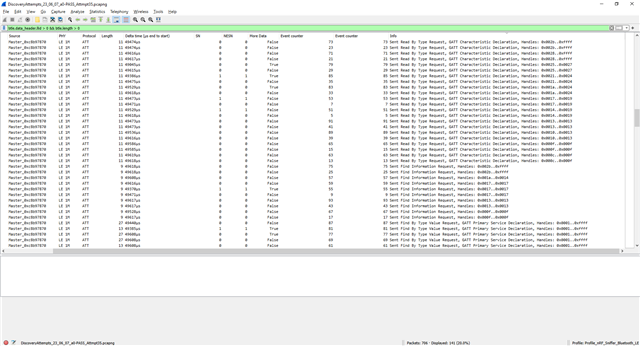Hi
I am using nRF51822 for central and peripheral, S132, Based SDK12
Attempting to configure the nRF51822 as a central, I am experiencing issues with Discovery process failure, my peripheral connection interval is defined between 20ms-75ms
I have noticed that this is dependent on MAX_CONNECTION_INTERVAL, when I set up interval connection between 10-20ms it works, but if, for example I set it up 10-50ms discovery fails, not all services are discovered upon connection, why is that? is there a way around it?
Thanks

